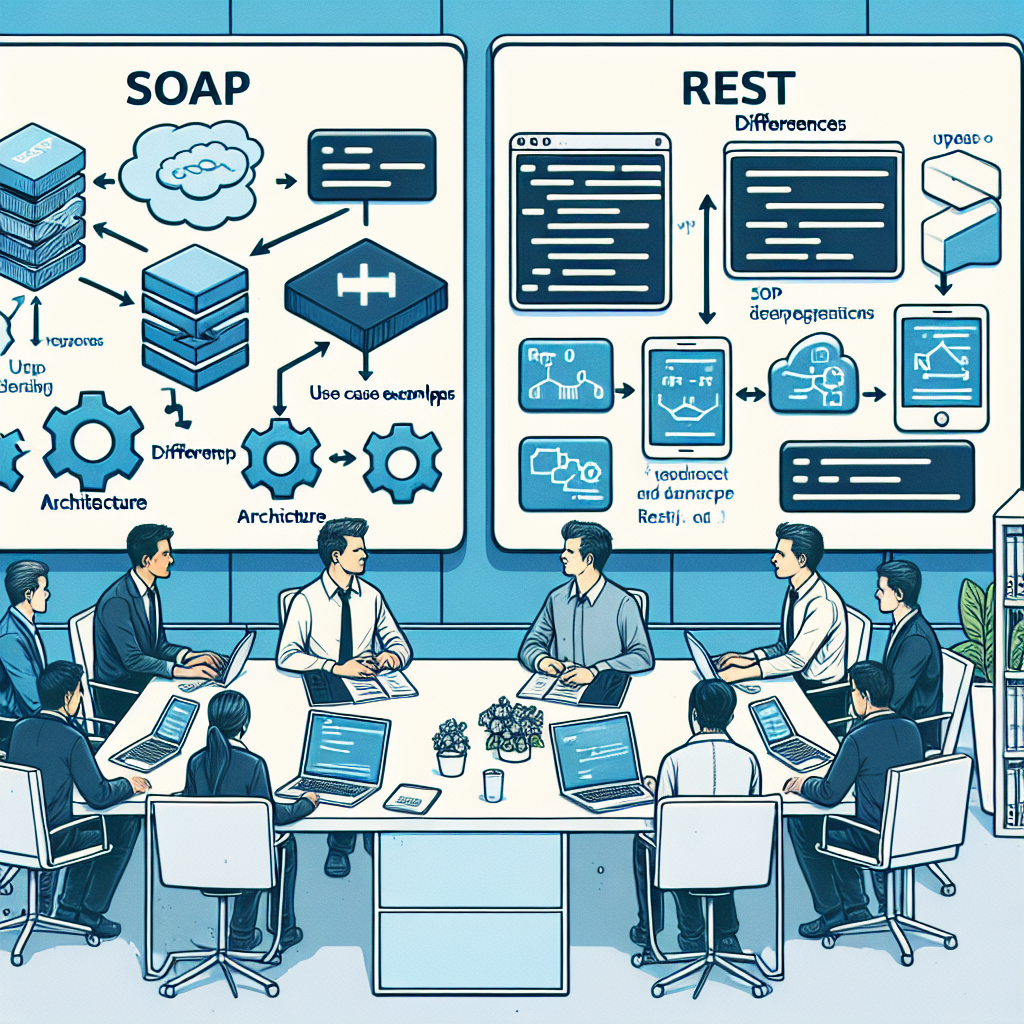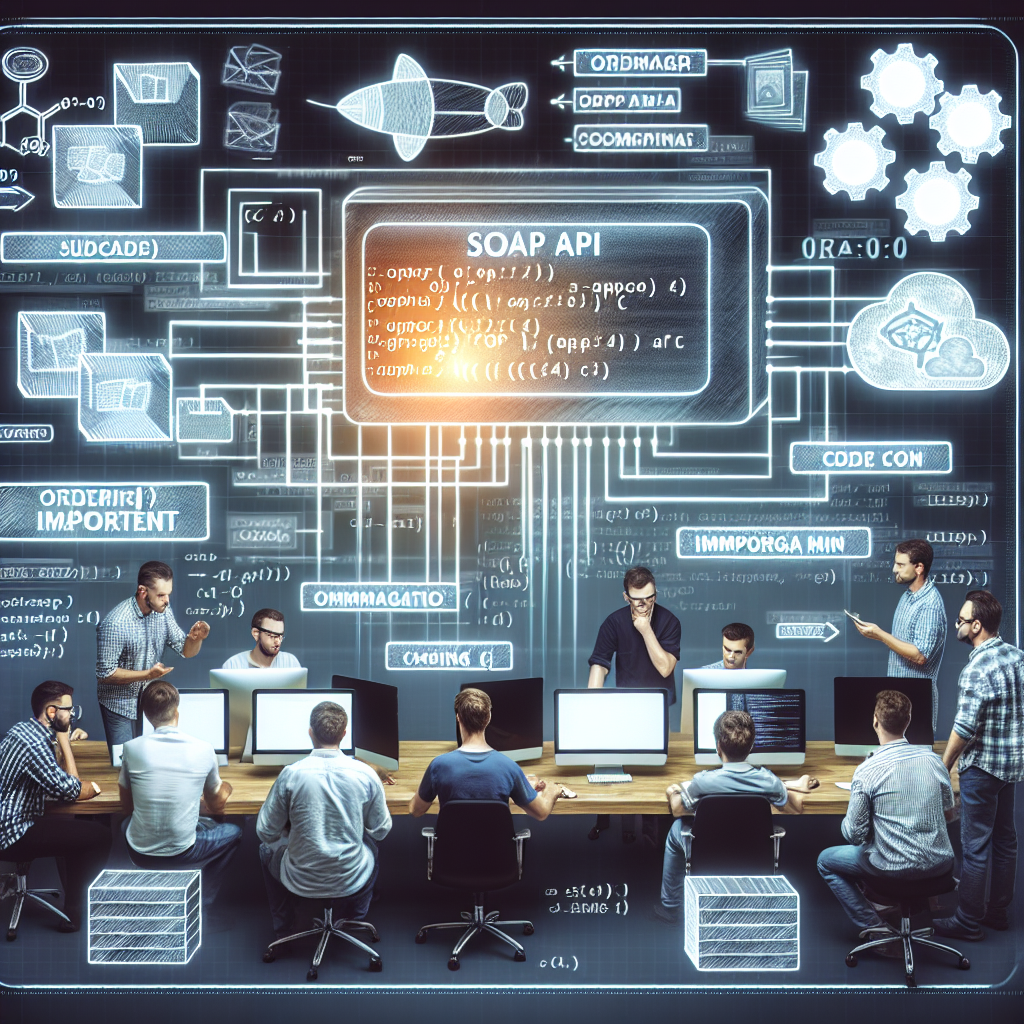
You’ve probably heard the term What is SOAP API bouncing around in tech circles, but what does it really mean for your business? Well, in simple terms, SOAP (Simple Object Access Protocol) is a protocol used for exchanging information in the form of XML. Imagine it as a structured messaging system that lets different software applications communicate over a network. If youre running a business where multiple software applications need to work together seamlessly, understanding SOAP API is crucial. It can drive efficiency, reduce errors, and enhance your service delivery.
Let’s break this down with a couple of relatable examples. Picture a healthcare provider that uses various systems for patient registration, billing, and medical records. If these systems don’t talk to each other efficiently, it can lead to delays and errors that affect patient care. By implementing a SOAP API, the healthcare system can ensure that all these applications work together smoothly, providing a better experience for both patients and staff. A 2019 study revealed that organizations utilizing APIs could improve operational efficiency by up to 33%!
You might be wondering, “What’s in it for me?” A study by McKinsey shows that companies utilizing APIs can see their revenue grow by 15% yearly. This means that if youre not using an API strategy, you could be leaving money on the table. When you use SOAP APIs, you can automate many integrations, ensuring they are both quick and reliable. Here’s how they can work wonders for your business:
Take the example of a logistics company that struggled with document exchange between its various departments. They lost time and money while trying to reconcile information between disparate systems. By introducing SOAP API, they not only automated document sharing but also ensured consistency across all platforms, leading to a remarkable 20% reduction in overhead costs. ⭐
Another client, a retail chain, utilized our SOAP API administrator services to better manage inventory across multiple locations. With a tailored SOAP API, they connected their inventory management software with their selling platforms, which resulted in a 40% increase in stock accuracy! ⭐
So, if you’re ready to take the first steps into the world of APIs and enhance your business efficiency, it’s time to consider ordering the creation of a SOAP API. It’s as easy as calling us to discuss your needs. Our experienced team at webmaster.md is here to help you navigate this process. With over 20 years of expertise in delivering tailored solutions, we ensure all services are under one roof. You don’t have to juggle multiple providers! Our customer relations manager, Arsenii, is available at +373 601 066 66 to assist you. Don’t hesitate; streamline your operations today! ⭐
To further understand the relevance of SOAP APIs in today’s marketplace, consider these statistics:
| Year | API Usage Growth | Program Efficiency Gains |
| 2018 | 45% | 25% |
| 2019 | 60% | 30% |
| 2020 | 75% | 35% |
| 2021 | 80% | 40% |
| 2022 | 90% | 50% |
| 2023 | 95% | 60% |
Isn’t it staggering how rapidly the API landscape is evolving? As businesses increasingly rely on technology for operational success, APIs like SOAP will only become more vital.
So, what are you waiting for? If you want to elevate your business and ensure it stays competitive, it’s crucial to understand and adopt SOAP APIs. Connect with us at webmaster.md, and let’s make magic happen in your IT infrastructure! ⭐

If you’re asking yourself, What does SOAP mean for coding?, youre in the right place! Understanding SOAP (Simple Object Access Protocol) is fundamental for any developer looking to create robust software applications. At its core, SOAP is a protocol for exchanging information in web services. Think of it as the standardized means by which different applications can "talk" and share data with one another—regardless of the language theyre written in or the platforms they operate on.
SOAP is characterized by a set of standards and protocols that aim to enhance application communication. Here are some key features:
Now, why does this matter to you? Understanding SOAP can significantly affect how you design and implement your coding solutions. Here are a few reasons:
Let’s say you’re working for a healthcare company that needs to integrate various systems—from patient management software to billing systems. SOAP APIs are invaluable here as you can ensure that critical patient records are accurately transferred without the risk of data loss. For instance, a healthcare provider we worked with successfully integrated its patient management system with a third-party pharmacy system using SOAP, reducing patient wait times by 25%! ⭐
Another scenario involves a logistics company facing challenges with inventory management across multiple locations. By establishing a SOAP API, they were able to synchronize inventory levels in real-time, drastically reducing stock discrepancies. Now, operations run smoothly with an alert system that notifies staff whenever stocks dip below a certain threshold. ⭐
Neglecting SOAP could put your business at a competitive disadvantage. With more than 50% of web services relying on it for functionality, understanding what SOAP means for coding is not just beneficial—its crucial for developers. As your business evolves, integrating SOAP into your strategy will facilitate better collaboration, system integration, and service delivery.
So, are you ready to up your coding game? Our professional specialists at webmaster.md can assist you in creating efficient SOAP APIs tailored to your project needs. With 20 years of experience, we guarantee quality and support all under one roof! Connect with Arsenii at +373 601 066 66 to get started today. Don’t miss out on the competitive edge that can be achieved through effective API utilization! ⭐

In the evolving world of web services, the debate surrounding SOAP vs. REST APIs is as prevalent as ever. Each has its own strengths and weaknesses, and understanding these differences is crucial for your projects success. So, how do you decide which one is best suited for your specific needs? Lets break it down!
SOAP, or Simple Object Access Protocol, is a protocol that allows applications to communicate over a network using XML. Here are some key characteristics:
A good use case for SOAP could be a banking system where transactions require high levels of security and complex operations. According to industry reports, over 80% of financial institutions still utilize SOAP due to these robust capabilities! ⭐
On the flip side, REST (Representational State Transfer) is an architectural style rather than a protocol. It relies on standard HTTP methods and is known for its simplicity and ease of use:
Many modern applications such as social media platforms and e-commerce sites leverage REST APIs because they provide a smoother user experience. For instance, approximately 65% of websites utilizing APIs prefer REST due to its lighter footprint and quick response times! ⭐
Now, how do you know if SOAP or REST is right for your project? Here’s a simple guideline:
Let’s check out how these APIs perform in real-world scenarios:
1. Scenario A: A Banking Application - A financial institution wants to create a service for handling transactions. Given the sensitive nature of the data involved, a SOAP API would be the best choice due to its advanced security measures and reliability.
2. Scenario B: A Social Media App - A start-up developing a social networking app needs to process numerous requests in real-time. By going with a REST API, they can achieve faster performance and ease of scalability, especially as they anticipate rapid growth and user numbers! ⭐
As you embark on your project, carefully assess your requirements. Consulting with specialists like our team at webmaster.md will help you determine which API approach aligns best with your business goals. With over 20 years of experience in the field, we can assist you in selecting, designing, and implementing the optimal solution. Contact Arsenii at +373 601 066 66 to discuss your needs and start your journey toward a robust API strategy today! ⭐

Ready to dive into the world of APIs? If you’re thinking, How can I order the creation of a SOAP API by importing API from a file?, you’ve landed at the perfect spot! SOAP APIs can significantly enhance your system’s integration capabilities, and importing an API from a file makes the process simpler than ever. Let’s walk through the steps together! ⭐
Before diving into the development process, outline what you need from your SOAP API. Here are some questions to consider:
Taking the time to clarify your needs now will save you lots of time and headaches down the line!
Once you have a clear understanding of your requirements, the next step is to prepare the API file. This file should be in a format that SOAP can utilize, typically in XML. Ensure that your file includes all necessary definitions:
For example, if the API is for an e-commerce platform, you might include methods for adding items to a cart or processing payments.
To build your SOAP API effectively, choose a development environment that suits your team’s skills and the complexity of the project. Here are popular choices:
Now, it’s time for the main event — importing the API file! Let’s break this down into manageable tasks:
Following these steps ensures that you import the API correctly, setting the stage for successful development.
Testing is a crucial phase and involves sending sample requests to your API and validating the responses. Here are some tips:
Once you’re confident with the testing, it’s time to deploy your SOAP API! Make sure to:
Your work doesn’t stop after deployment! Ongoing maintenance is key to keeping the API efficient. Regularly update the API based on user feedback and monitor its performance.
At this point, you might be thinking about the best way to get started with creating your SOAP API. Let the experts at webmaster.md take the reins! With 20 years of experience in offering complete software development services, we’re the team you need. Reach out to Arsenii at +373 601 066 66 today to order a custom SOAP API tailored specifically for your business needs. Don’t wait; enhance your systems with the power of APIs! ⭐
Leaders in the IT market |
| 14+ years of experience and innovative solutions to help your business stand out and grow. |
Inspiring portfolio |
| 150+ successful projects: from sleek landing pages to complex corporate systems. |
Team of experts |
| 51+ professionals who bring your ideas to life with maximum efficiency. |

| NOTORIUM TRADEMARK AWARDS |
| Notorium Trophy 2017, Notorium Gold Medal 2018, Notorium Gold Medal 2019 |

| TRADE MARK OF THE YEAR |
| Gold Medal 2016, Gold Medal 2017, Gold Medal 2018, Gold Medal 2019 |

| THE BEST EMPLOYER OF THE YEAR |
| According to the annual Survey conducted by AXA Management Consulting - 2017, 2018, 2019 |